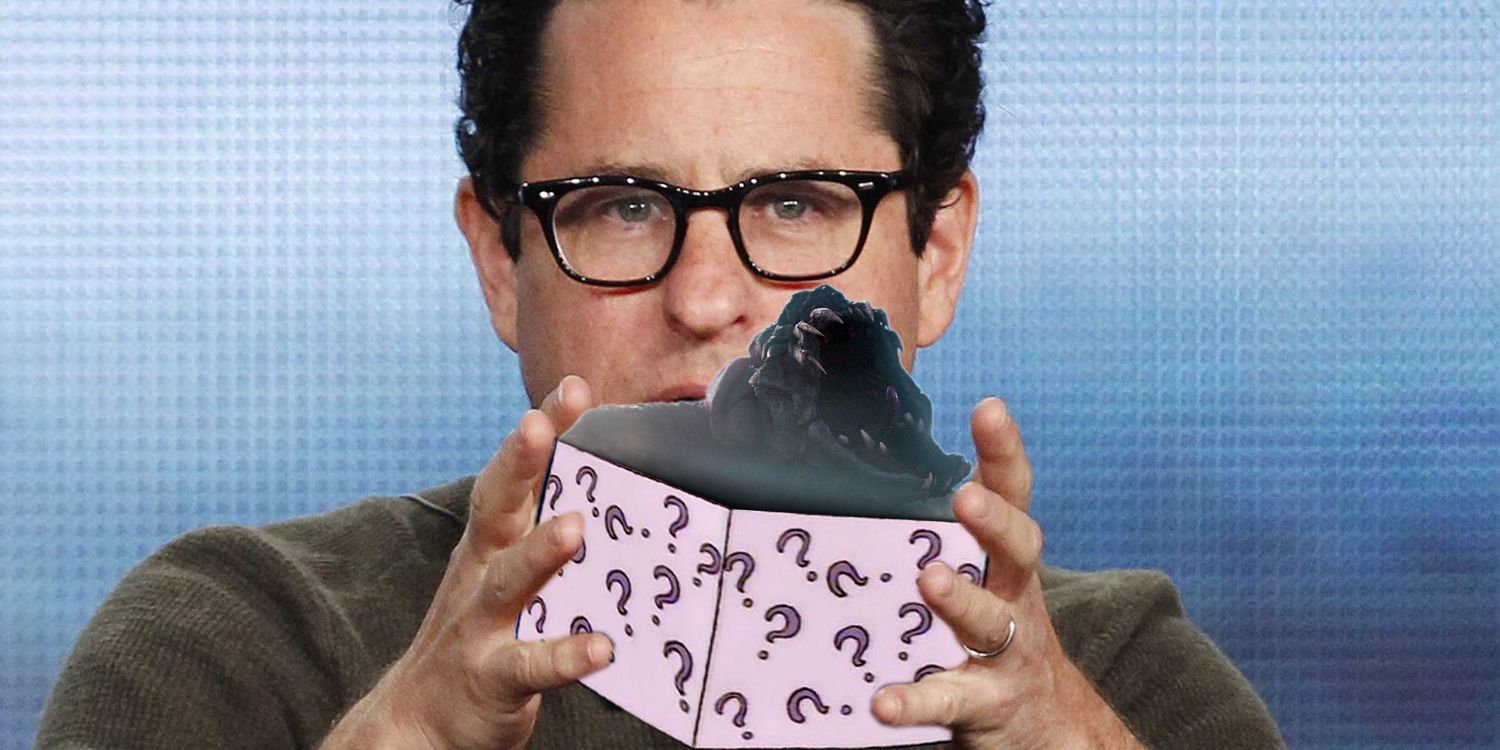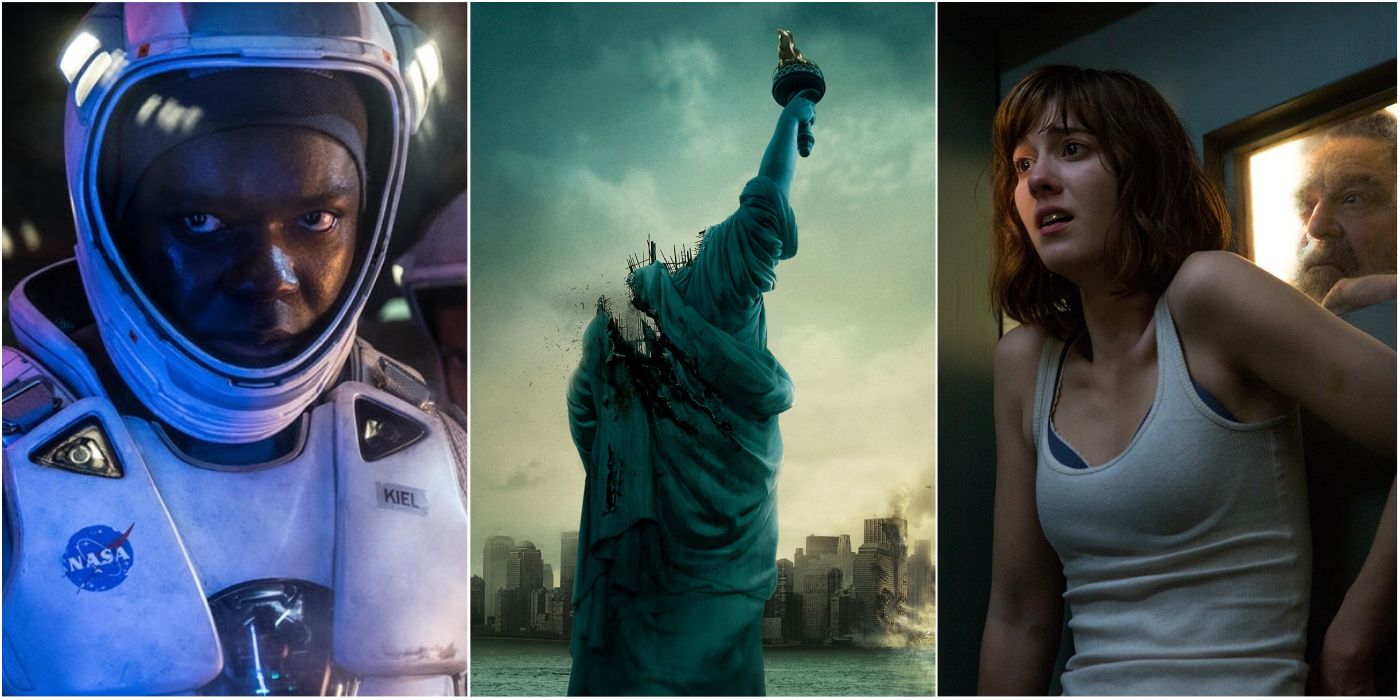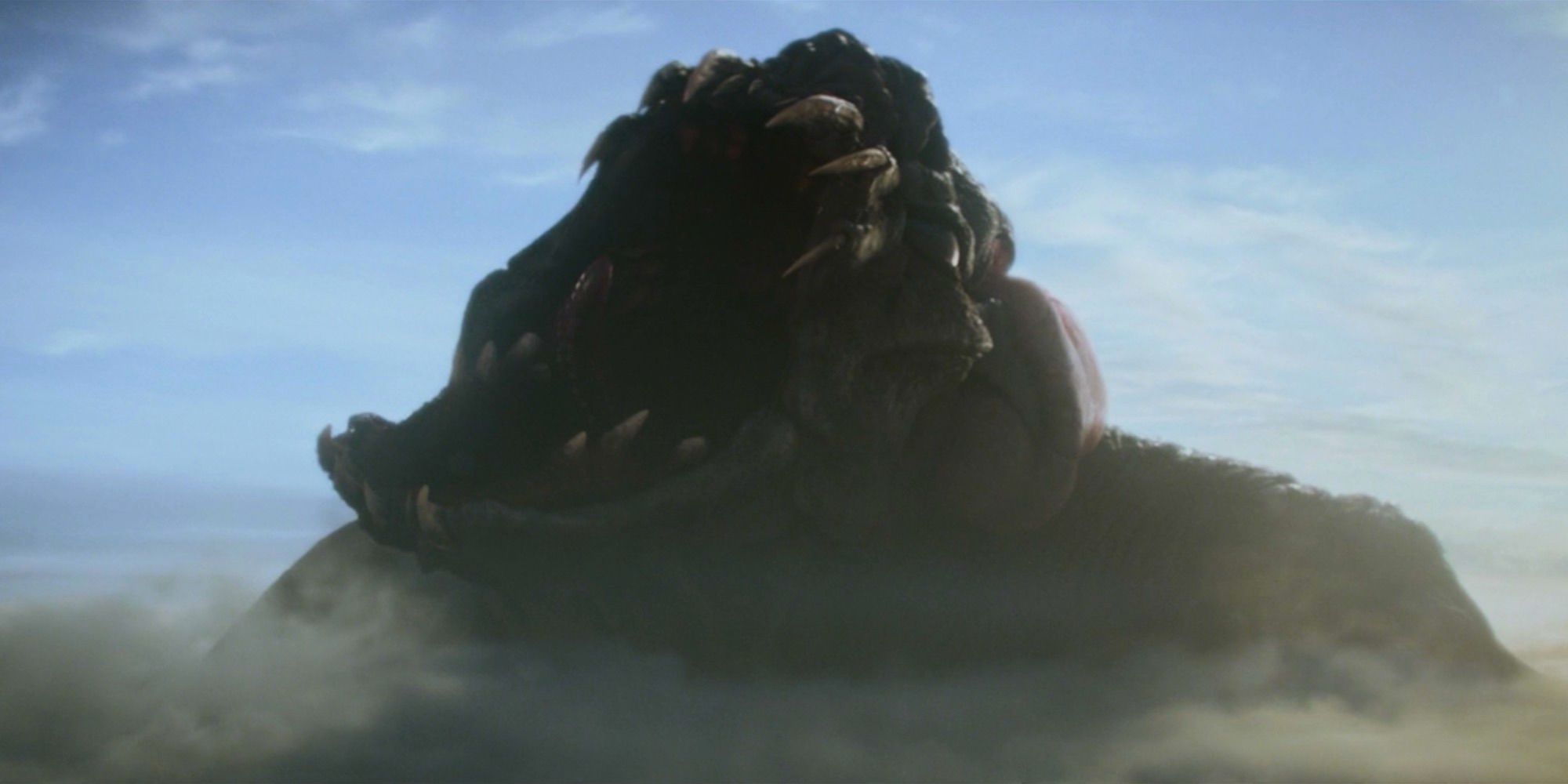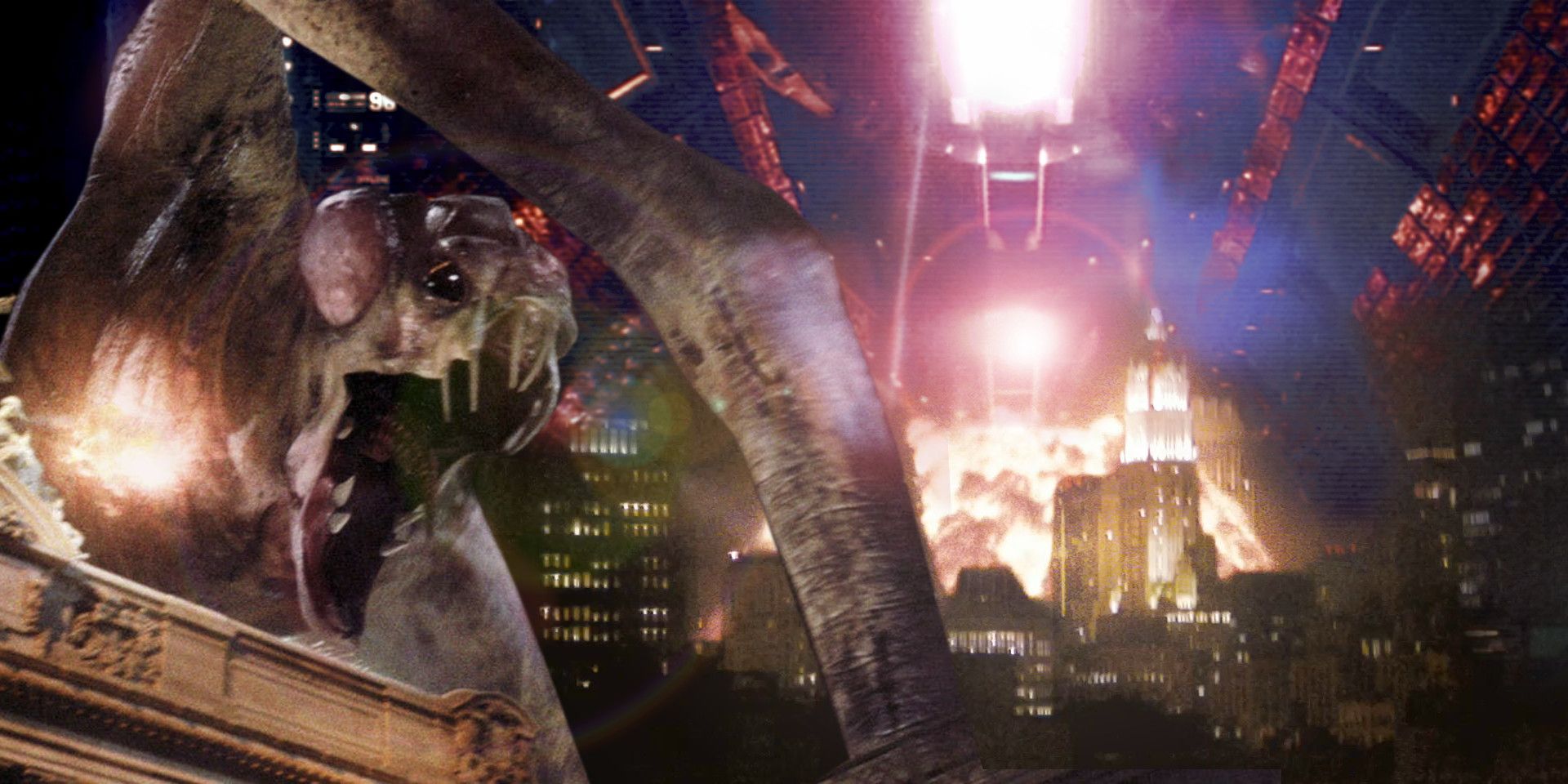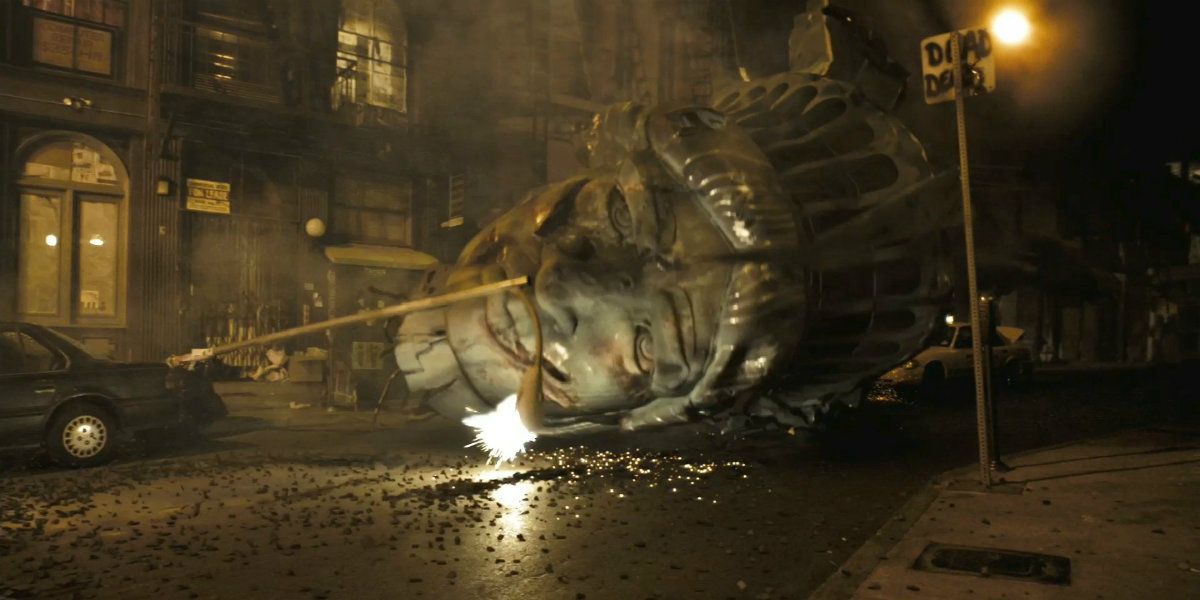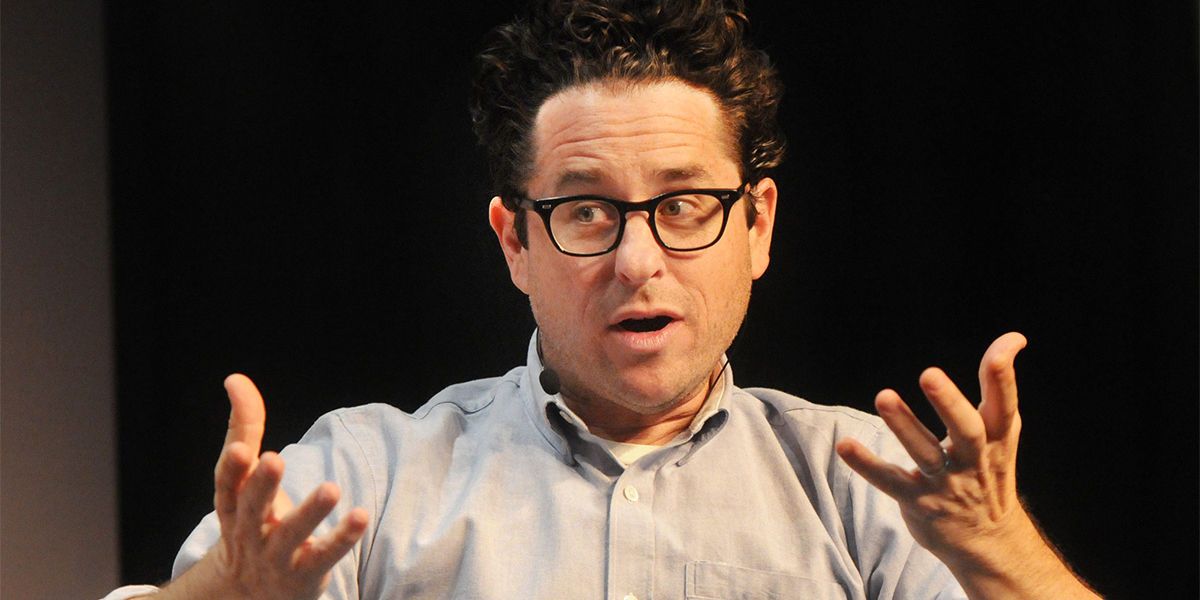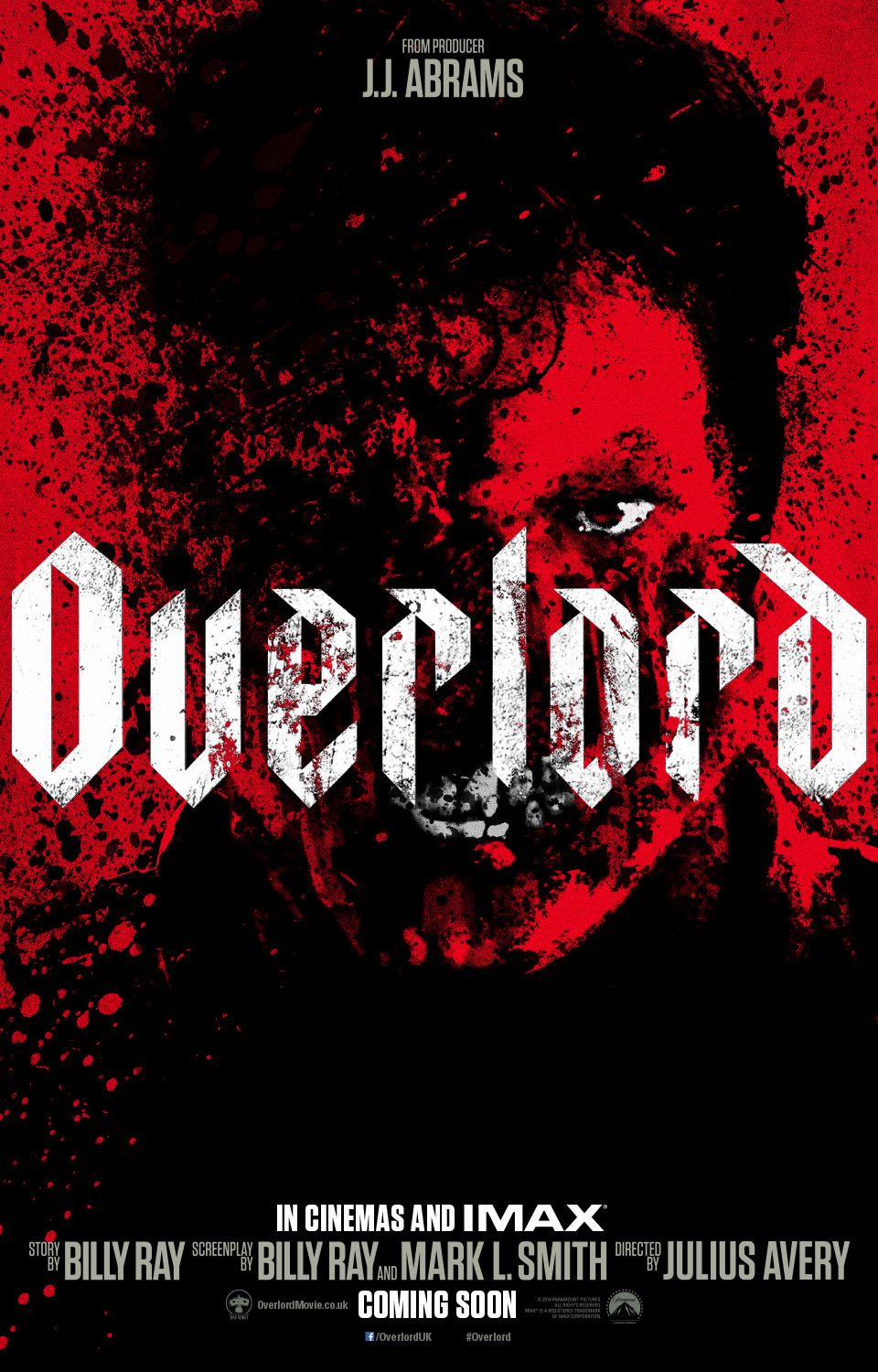The Cloverfield Paradox released with one of the most audacious marketing stunts in cinema history. However, instead of changing the game, all it did was show the flaws in J.J. Abrams' industry-dominating mystery box theory.
The mystery box has become the Abrams punchline, an iconic, occasionally-mocked summation of his ethos towards storytelling and the practicalities of movie releasing in general. The basic idea was popularised by the filmmaker himself during a 2007 TED talk: the anticipation and suspense of a work - the used example was a literal mystery box Abrams got as a child - is as important as the work itself. As such, nearly all of his films and TV shows made as producer, writer or director follow this logic.
Related: The Cloverfield Paradox Ending Explained
And Cloverfield may be the most overt case. After all, we've become accustomed to the release of a new entry being as much an event as the movie itself, even as they each subvert expectations; the first film was announced with a title-less trailer drop and moved towards release under an alternate-reality-game (ARG) hidden veil secrecy, a trick 10 Cloverfield Lane extended with its unexpected franchise connection revealed two months before release. They thrived off suspense. Yet nothing could prepare us for The Cloverfield Paradox - in both a good and bad way. Its day-and-date post-Super Bowl release on Netflix was - bar some unclear rumors - a delightful shock, but quickly emerged to be hiding the worst of things: a disappointing movie.
That's crushing by itself, especially given the headline-making method of delivery, yet all the talk of the movie's insular problems and narrative connections has, rather ironically, distracted from the bigger picture and what this means for one of the most promising new franchises and the overriding creative ethos of its creator: the mystery box is broken.
This Page: The Cloverfield Franchise Was The Ultimate Mystery Box
J.J. Abrams Never Revealed What Cloverfield Actually Was
To understand the impact of The Cloverfield Paradox on the wider franchise and mystery box, we need to know what exactly the Cloverfield franchise is. And that's not easy when you strip away the basic shock idea.
It started out as a simple story: a modern monster movie. We had the central found footage conceit that grounded the story in the now, with Matt Reeves going to great lengths to invoke images of 9/11 just seven years after the disaster, and the ARG presented a broken, corrupt world dominated by corporations where human interference broke Earth's order and saw an unstoppable monster risen from the deep. That was the premise, and the notion was standalone: the end of the movie is the military destroying all of Manhattan in a last-ditch effort to stop the creature of unclear origin. The end.
Related: How All The Cloverfield Movies Connect
The follow-up could have continued that thread, but instead saw a major, unexpected pivot. After eight years of silence, Paramount dropped a random trailer for 10 Cloverfield Lane, teasing a single-location thriller with John Goodman, Mary Elizabeth Winstead and John Gallagher Jr. that was somehow connected. How was it exactly? In the end, not really at all: this was an alien invasion film that bore next-to-no stylistic or plot connection beyond some recurring J.J. Easter eggs. It quickly dawned we weren't dealing with a narrative, but an anthology: Abrams had built a banner by which he could take great sci-fi ideas (10 Cloverfield Lane was a separate script called The Cellar retroactively fitted into the Cloverfield series) and put them out to a mainstream audience.
Or was it? In an interview at the time of 10 Cloverfield Lane's release, Abrams said he was starting "what is in part an anthology, and in part this other thing that we're working on", teasing a big end-game plan. What that "other thing" was isn't known, but it's now clear anthology wasn't the sum total.
And so we get to The Cloverfield Paradox - ostensibly a space-mission-gone-wrong horror - which introduces the idea of alternate dimensions and, more granularly, the concept that a pivotal event in one can lead to bleed over into others. The suggestion is that the Shepard test at the center of the movie led to one of two things: the arrival of monsters over from other dimensions into our own across space and time in a Back to the Future-sort of Grandfather Paradox; or a never-ending ripple across the multiverse where everything went to hell. We've concluded the former, although the specifics are so vague (which we'll get back to) that it could go either way.
What The Cloverfield Paradox suggests, essentially, is that everything is actually connected and the result of inter-dimensional meddling; what we've been seeing is extra-dimensional beings plonked in various points of our past (in the case of the upcoming Cloverfield 4, going all the way back to World War II). This is immediately problematic, not only because it doesn't really make much consistent sense, but because the vessel is so poor.
The Cloverfield Paradox Was Ruined By Cloverfield
We've been waiting for The Cloverfield Paradox for a long time. What was once known as God Particle was suspected to be part of the franchise from the moment the 10 Cloverfield Lane trailer dropped, confirmed later in 2016. At that point, it had a release date set for 2017, one that was repeatedly pushed back until settling on April 2018; a shift so high profile it ranked on Screen Rant's most anticipated movies of 2017 and 2018.
Related: Did You Catch Simon Pegg's Cameo In The Cloverfield Paradox?
What quite happened on the journey of God Particle to the small screen is unclear, but we do know some key details. It was originally a promising spec script written by Oren Uziel that bore little resemblance to the finished product; there were no alternate dimensions, instead, after apparating from Earth, the film's space station was approached by another ship, leading to a closet murder mystery. Some changes were made to God Particle's screenplay before shooting, then, part-way through production (shortly after 10 Cloverfield Lane released), it was twisted into a proper Cloverfield-connected feature. Mid-production changes are always eyebrow-raising, and while it's not clear whether these were done to elevate a problematic movie or led to The Cloverfield Paradox's many pacing and tonal issues throug retrofitting, their impact is far too heavily felt in the released picture.
The result was a poor film. That's the consensus for both critics and audiences on Rotten Tomatoes (no fan-reviewer divide here), but also of the studio: per reports after the release, Paramount dumping a major franchise tentpole on Netflix was a novel form of damage control. The audience of Netflix is, plainly, more casual - there's less time, financial and personal investment in a viewing - so engagement would be higher than an opening weekend with horrendous word-of-mouth, and the release method overrides a lot of immediate response. It was a true win-win: Paramount get rid of another likely bomb (for a price greater than it cost to make, no less); Netflix gets to prove how it's dominating the current landscape.
Yet while that's a success of cross-corporate management, it doesn't avoid the two companies tried to sneak a low-quality film past us, nor the converse damage it's wrought on the franchise.
The Cloverfield Paradox Has Damaged Cloverfield
As already alluded to, it's not quite clear what The Cloverfield Paradox's proposed solution to the cohesive universe is. Whatever it is (time travel or multiverse jumping), ostensibly it's providing some form of solution to how monsters and/or aliens can exist in the real world. The problem comes in that it was always assumed the previous films were working on standard sci-fi genre logic where that balance of real and fantasy is a given - it's the accepted leap, like wizards in Harry Potter. All this explanation does is shift the leap - we're now saying the divergence point between the film and reality is the creating of a portal rather than a monster - and offers little tangible change or elaboration; the monster still comes from the sea and the aliens from the sky, we just have them originate in a different reality's sea and sky. It's an answer that answers nothing - and makes the whole thing feel empty as a result.
Related: Cloverfield Paradox: The Biggest Unanswered Questions
What The Cloverfield Paradox has done, really, is created needless confusion. Between an accidental sync-up between Cloverfield and Paradox and the larger monster at the end linking into a decade-long theory of how the monster in Cloverfield was just a baby, there's pockets of the fanbase that believe all manner of incoherent theories: that the movies unfold at the same time; that the monster is a dimension-jumping harbinger; even that the alternate universe Cloverfield Station that crashes into the ocean is the same seen in the background of Cloverfield's final shot. These can all be disproven objectively - mainly by the clearly futuristic setting of The Cloverfield Paradox (the viral marketing puts it in 2028) - but that hasn't stopped the misinformation spreading, not least because the previous vagueness of the franchise has promoted such out-of-the-box thing.
Before The Cloverfield Paradox hit, we expected the franchise's major barrier was going to be sustaining surprise. Instead, it's more text-based. The next Cloverfield film - a World War II-set thriller with Nazis wielding future-tech titled Overlord - is presumably connected via more interdimensional bleed but under assumed connections will be lumbered with the pretense of being a direct prequel or expected linking. And what of the suspected Cloverfield 5, Kolma, which will see Daisy Ridley flirting with the afterlife? The series has become about a non-existent grander narrative, creating expectations that cannot be met in the retroactively-connected movies and hurting actual quality.
Cloverfield Has Failed At Its Plan
Whatever Cloverfield was meant to have been or evolve into, The Cloverfield Paradox presents a major stumbling block. It's bad. The movie has had a shocking reception, with the only real excitement coming from the confusingly-presented faux-connective tissue (which we've just broken down). While that provides some grounding for those eager to have Cloverfield make sense as a narrative a la most shared universes, it hurts something more unifying and powerful the franchise had: quality.
When 10 Cloverfield Lane came out, the anthology idea was so roundly accepted because Dan Trachtenberg's film was so good that even those who desperately hoped to learn the true evils of Tagruato were so satisfied otherwise it didn't matter. Even with the promise of future evolution, the fact this wasn't a standard-throughline series meant that the entire premise hinged on the promise of high quality above all else. To put even one bad movie out creates pause, and for it to be one that's explicitly become bad because of the franchise, everything twists it the other way.
Related: How The Cloverfield Paradox Sets Up Cloverfield 4
The Cloverfield Paradox and its development sends a message of prioritizing answers over quality. Now, 10 Cloverfield Lane looks suspect or needless because it didn't provide answers where its successor did, regardless of quality or relevance of said answers. It's a tempering; Cloverfield will no doubt continue and fans will follow future ARGs with anticipation, but the spark has gone.
More pragmatically, the new movie has seemingly given up the big reveal. It wasn't just a film that Netflix dumped on our TVs Super Bowl night, but the key to one of the biggest mystery boxes J.J. Abrams has ever teased us with. And that brings us to real long-term impact.
The Mystery Box Has Broken
This isn't the first time the mystery box has been challenged. In fact, the method's success rate is woefully low. Time and again we've seen it stumble and do so for the same recurring reason; while the mystery presented was strong, the explicit solution provided by the film wasn't. Super 8 was just dark E.T. on a train; the villain of Star Trek Into Darkness was actually Kahn; the hyper-secretive production for Star Wars: The Force Awakens was hiding the death of a character everybody expected and a plot remix of A New Hope. None of these are bad films, but they feel disappointing due to the promise of something out of the ordinary. Even when the answer isn't the most obvious case, the reveal still struggles to live up to his build; Lost is prime mystery box (even though Abrams stepped away from active involvement after the premiere), and while the show did answer many of the questions he raised (namely the polar bear and the monster) in gonzo fashion, many felt it missed expectations with a more character-led conclusion.
The mystery box works on the premise that anything is possible, that a movie or TV show will deliver something at the very limits of imagination. And that's flawed, because this media is always under inherent restriction; crucially, while Abrams will never open the real-life box that motivated the entire theory, movies are released and live beyond that first lights-down thrill. They need to offer something more - something tangible.
Related: The Cloverfield Paradox: The Most Brutal Reviews
That's why Cloverfield became the prime example of how to do the mystery box right; not only were the original movie and 10 Cloverfield Lane dominated by constantly mysterious marketing - both viral and unconventional variance on traditional methods - but the movies they promoted maintained that sense of the exciting unknown while telling a successfully standalone adventure. There was always something deeper in the world, so just as they satisfied on a quality level, there remained an aching question. You can't get much closer to the mystery box personified than that.
But now The Cloverfield Paradox opens that box within the box, and while it may contain a trinket that links, it destroys the promise. In the wake of mystery, there's a void where anything is possible simply because there is a void; Cloverfield never had an explanation to hide, and now we know it. To pull back the curtain doesn't even reveal a man at a console, rather an IOU.
-
With this latest turn, it's time to question what the mystery box style of storytelling really offers. It's pitched as an all-encompassing experience that includes not just the two hours in the theater but the surrounding release, yet is entirely backward focused; the gambit is purely about getting people in that seat and thrilling as the lights go down - what Abrams describes as the best part of cinemagoing - with lesser concern for what comes out the other end.
And that just isn't enough. Anticipation can be greater than the film itself, but if that film is The Cloverfield Paradox, it's not much of an achievement.
Next: Read Out The Cloverfield Paradox Review

